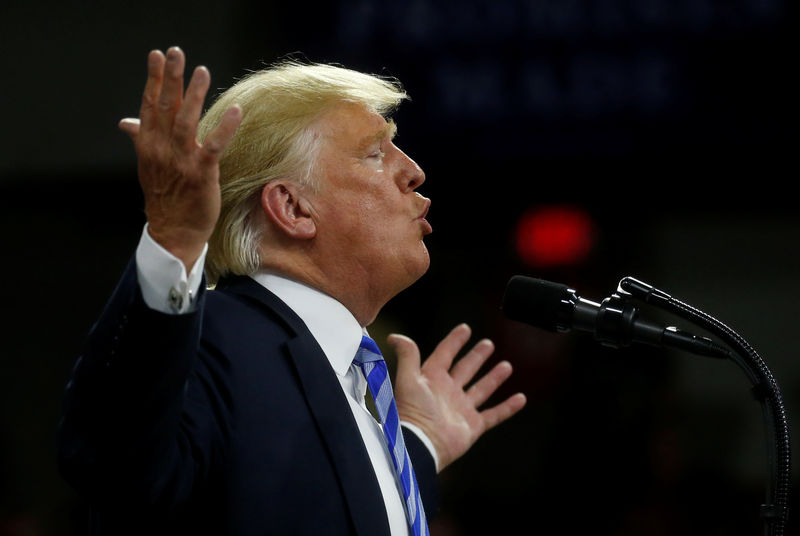(Bloomberg) -- Terms of Trade is a daily newsletter that untangles a world embroiled in trade wars. Sign up here.
The European Union’s new trade chief pulled no punches on an inaugural visit to Washington, saying President Donald Trump’s tariff threats amount to short-sighted electioneering and warning him about widespread economic damage from protectionism.
Phil Hogan said Trump’s “America First” agenda has helped bring about “a high-pressure crisis moment for the international trading system.” He urged the U.S. government to work with the EU to uphold open commerce.
“If we go about this in the right way, working together, the mutual benefits can be very significant,” Hogan told a conference in the U.S. capital on Thursday. “But, if we fail to do so, the damage will be significant, not alone for us both, but for the world.”
Hogan is seeking to prevent a deterioration in transatlantic commercial ties that have been fraying for months as a result of disagreements over everything from aircraft subsidies to farm tariffs. He spoke bluntly about growing EU unhappiness over U.S. unilateralism, saying it was driven by Trump’s desire for re-election.
‘Managed Trade’
“It’s short-term thinking,” Hogan said in a separate video interview with Global Counsel Chairman Peter Mandelson, a former EU trade commissioner. “Between now and the November elections is what Mr. Trump is thinking about.”
Hogan took a swipe at a preliminary trade agreement reached between the U.S. and China, saying the deal smacked of “managed trade” and threatening an EU complaint to the World Trade Organization. The pact was signed with much fanfare in Washington on Wednesday, two days after Hogan arrived in the city.
The EU is concerned about a Chinese pledge in the accord to increase purchases of U.S. goods and services by at least $200 billion over the next two years.
“We haven’t analyzed the document in detail, but we will, and if there’s a WTO-compliance issue of course we will take the case,” Hogan told the Washington conference at the Center for Strategic and International Studies. “We’re not trigger-happy about taking cases to the WTO -- we don’t want to create that impression. But we’ll stand up for our own economic interests.”
Hogan said Trump is misguidedly “obsessed” with a U.S. deficit in goods trade with the bloc and should also take into account services, where the country has a $60 billion surplus. Altogether, transatlantic trade in goods and services is worth over $3 billion a day, according to Hogan.
“Sounds like a fairly healthy relationship to me,” he said. “So why put tariffs on these EU products to make them more expensive for your people?”
‘Let’s Talk’
Hogan sharply criticized the Trump administration’s invocation of national security to apply duties in 2018 on EU steel and aluminum, and threaten similar levies on European cars and auto parts. The metal duties prompted tit-for-tat EU tariffs, and the bloc has pledged to react the same way were European automotive goods to be targeted.
“We reject the U.S. labeling the EU as a security risk in order to justify the imposition on tariffs,” Hogan said. “This narrative is hurtful to both our people.”
The two sides are locked in arguments on other points too, including:
- A U.S. threat to hit $2.4 billion of French goods with tariffs as retaliation over a digital tax in France
- A deadlock on the WTO’s appellate body caused by a U.S. refusal to consider new panelists
- U.S. tariffs on a range of European products following a WTO ruling about illegal aid to Airbus
- American demands to add agriculture to the agenda of talks that are due to address charges on industrial goods
“If we continue to beat each other up then the future risks being lost to new competitors,” Hogan said. “Let’s talk, let’s cooperate, let’s lead.”
